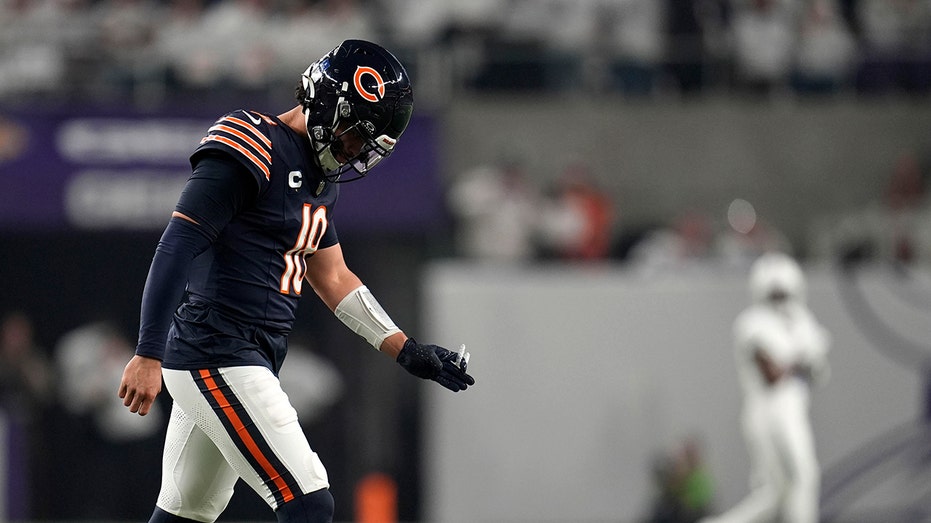NATO Summit in Washington, DC shields world leaders from crime threats in nation's capital
As Washington, D.C., implements heightened security across downtown as world leaders meet for the 2024 NATO Summit, experts say the precautions are necessary.

Washington, D.C., has implemented heightened security measures in and around government buildings to shield world leaders visiting the nation's capital for the 2024 NATO Summit this week from potential crime threats.
Fencing, barricades and road closures have cordoned off parts of the city. Homicides and carjackings have dipped so far in 2024, but violent crime spiked in the capital last year and remains a top issue in the nation's capital.
Mike Verden, former Secret Service agent and founder and CEO of security firm Lake Forest Group, says Washington, D.C., is likely the best-equipped city in the United States to handle security for the international event, because the capital has a range of city and federal agencies that handle both local crime and coordinated threats.
"With Washington, D.C., you have a number of different local and federal law enforcement agencies. It is like no other place in the world, really. … You have the U.S. Capitol Police, you have the U.S. Marshals, you have the Metro Police for the city of Washington," he told Fox News Digital.
Verden, who helped plan security for the NATO Summit in Chicago in 2021, said the conference would be designated as a National Special Security Event (NSSE), which involves three primary federal agencies responsible for safety, security and emergency management for the event. These agencies include the Secret Service, the FBI and the Federal Emergency Management Agency.
"In my experience, I think Washington, D.C., is better equipped to handle this scale with respect to the NSSE classification that any other city in the world," he told Fox News Digital.
Representatives from 32 different countries, including new members Finland and Sweden, will be convening in Washinton, D.C., between Wednesday and Friday to mark the 75th anniversary of NATO. Physical security in downtown includes fencing, barricades, special ID badge checks and military vehicles blocking access to certain roads.
"There's 30-some countries in NATO, and all of those heads of state are protected by the Secret Service," Verden explained. "We actually assign a dignitary protective detail to the visiting head of state. In addition to that — this is applicable to Washington, D.C. — you have TFRs, which are temporary flight restrictions, and … you have the Coast Guard on the water."
Former Washinton, D.C., homicide detective and Fox News contributor Ted Williams called the heightened security measures this week a "necessary minor inconvenience to keep world leaders visiting D.C. safe."
"The last thing we need is an international incident that embarrasses our country hosting the NATO convention here in the District of Columbia," Williams told Fox News Digital.
While local crime is taken into consideration, "intelligence is a key component" in assessing risk during the summit, Verden explained. "Based on the intelligence, they're going to come up with a risk profile. Based on the risk profile, they may ask for additional assets such as National Guard or more manpower or stricter flight restrictions. It's driven by intelligence."
He added that the "emerging threat" that is "top of mind" for most security officials currently are demonstrations, specifically those regarding war between Israel and Hamas, as well as Ukraine and Russia.
WOULD-BE CARJACKER TARGETS SUPREME COURT JUSTICE SOTOMAYOR SECURITY DETAIL OFFICER, SUSPECT SHOT
Williams said law enforcement downtown will be "prepared" for demonstrations that could turn violent, noting that the last time Washington, D.C., put up similar fencing was after the Jan. 6 insurrection at the Capitol.
The heightened security also comes as the Metropolitan Police Department (MPD) works to curb juvenile crime. Earlier this month, the police department implemented a youth curfew that will last until August, meaning juveniles will face disciplinary consequences if they are seen out and about unsupervised between midnight and 6 a.m. for the next two months.
While curfews are not new in Washington, D.C., MPD has experienced staffing shortages over the last few years, which may make it difficult for the department to enforce the curfew, Williams noted.
"There is a law enforcement shortage not only in Washington, D.C., but all over the country … and that's going to be one of the most difficult problems … because there are many exceptions to the D.C. curfew," Williams said. "For instance, person, a young person under the age of 17 can be out with his parents or guardians during the time of the curfew. Young people are permitted to be in the front of their homes during the time of the curfew and not be in violation. … Young people are permitted to go back and forth to work during the curfew."
Juveniles make up a large portion of criminal suspects tied to certain violent crimes, such as carjackings. The curfew is supposed to help curb those numbers while kids are out of school for the summer.
"But curfews can work if they can be enforced. As it stands right now, it may be more smoke and mirror than reality because you are limited in the amount of law enforcement officers that are on the street at any given time," Williams said. "And when you think about a law enforcement officer having to specifically deal with crime on the street and also trying to enforce a curfew, that's an insurmountable task."
Violent and property crime has decreased in Washington, D.C., since last year, while all crime across the capital is down 17%, according to MPD statistics.



